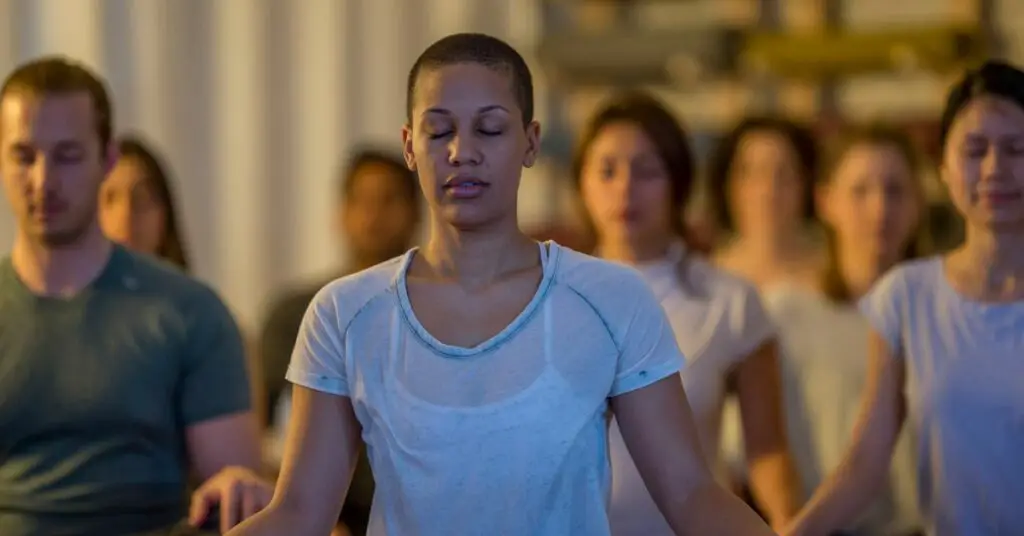It’s no secret that people are busier than ever. With work, family, and social obligations, there never seems to be enough time in the day. So it’s no surprise that more and more people are turning to meditation as a way to find some peace and quiet. But what many people don’t realize is that meditation is not just a way to relax; it’s also a great way to improve your focus and creativity.
To answer the question, yes, meditation can be considered a hobby. It is an activity that people do for enjoyment and relaxation. However, it can also offer many other benefits.
When practiced regularly, meditation can help to improve focus and concentration, reduce stress and anxiety, and promote overall well-being. In addition, meditation is a great way to step out of the hustle and bustle of everyday life and find some time for stillness and self-reflection. For these reasons, everyone should make a point to incorporate meditation into their weekly schedule. even if it’s just for 10 or 15 minutes a day. By doing so, you will be giving yourself the opportunity to reap all the benefits that this wonderful practice has to offer.
The benefits of meditation
Meditation has been practiced for centuries, and it has a multitude of benefits for both the body and the mind. One of the most important benefits of meditation is that it can help to managing stress levels. In our fast-paced, constantly-connected world, it can be all too easy to get caught up in anxious thoughts about the future or dwell on negative experiences from the past. Meditation allows us to take a step back from these thoughts and focus on the present moment. In doing so, we can gain a new perspective on stressful situations and learn how to better manage our stress.
Additionally, research suggests that meditation can have a positive impact on physical health. Studies have shown that meditation can lower resting heart rate and blood pressure, improve sleep quality, and help to ease chronic pain.
Meditation has also been found to boost the immune system and increase levels of serotonin, a hormone that is responsible for promoting feelings of happiness and well-being.
So, as you can see, there are many good reasons to add meditation to your weekly routine. If you’re looking for a way to reduce stress, improve your focus, and promote overall health and well-being, then look no further than meditation. Give it a try – you may just be surprised at how much it can help you in all areas of your life!
Types of meditation
There are many different types of meditation, each with its own benefits. Guided meditation can be helpful for beginners who need assistance in focus and relaxation. Mantra meditation involves repeating a certain phrase or word to help still the mind. Mindfulness meditation is all about being present in the moment and observing thoughts and sensations without judgment. Transcendental meditation uses a mantra but also includes focusing on the breath. Yoga is a type of meditation that uses physical postures and breathing exercises to calm the mind.
There are many other types of meditation as well, such as walking meditation, body scan meditation, and compassion meditation. Ultimately, the best type of meditation is the one that works for you. Experiment with different techniques until you find the one that helps you achieve a sense of peace and well-being.
Elements of meditation
In order to gain the most from meditation, it is important to create an environment that is conducive to inner peace and reflection. A quiet setting is essential in order to minimize distractions and allow you to focus your attention on your breath and body.
A comfortable position is also important, as you will be sitting or lying down for an extended period of time. It is best to choose a position in which you can maintain good posture and not get too comfortable, as you may end up falling asleep!
Finally, it is important to approach meditation with an open attitude. This means letting go of any expectations or preconceived notions about what meditation should be like. By having an open mind, you will be able to truly experience the benefits of this ancient practice.
Everyday ways to practice meditation
There are many different ways to meditate, and no one way is necessarily better than another. The important thing is to find a method that works for you and that you can easily integrate into your everyday life. Here are a few suggestions:
Breathe deeply: Deep breathing helps to focus and calm the mind. When you find yourself feeling stressed or anxious, take a few minutes to breathe deeply and notice the sensations in your body.
Scan your body: Another simple but effective way to meditate is to scan your body from head to toe, noticing any areas of tension or relaxation. This can help you to focus on the present moment and let go of any negativity that may be weighing you down.
Repeat a mantra: A mantra is a word or phrase that you repeat to yourself during meditation. It can be anything that has personal meaning to you, such as “I am peaceful” or “I am loved.” Repeating a mantra can help to quiet the mind and focus your thoughts.
Walk and meditate: Walking is a great way to get some exercise while also clearing your mind. As you walk, pay attention to your breath and the sensations in your body. If your thoughts start to wander, simply refocus on your breathing.
Engage in prayer: Prayer can be a powerful form of meditation. If you have a specific intention or goal that you’re working towards, spend some time each day praying for guidance and strength. even if you don’t consider yourself religious, prayer can be a helpful way to connect with something larger than yourself.
Read and reflect: Another way to incorporate meditation into your everyday life is to set aside some time each day for reading and reflection. Choose something that has meaning for you, such as an inspiring poem or passage from a book. Spend some time slowly reading it aloud or silently to yourself, letting the words sink in. afterwards, take some time to reflect on what you’ve read and how it relates to your own life.
No matter what method you choose, the important thing is to be patient and consistent with your practice. Meditation takes time and effort to master, but it is well worth the effort! By making meditation a part of your daily routine, you can enjoy all the benefits that this ancient practice has to offer.
How to make meditation a part of your daily routine
Making meditation a part of your daily routine does not have to be difficult. In fact, there are many simple ways to incorporate this stress-reducing practice into your day-to-day life. One way to get started is to set aside a specific time each day for meditation. For example, you could meditate for 10 minutes after you wake up in the morning, or before you go to bed at night. Once you have established a regular time for meditation, find a comfortable place to sit or lie down. You may want to play soft music or light a candle to create an calming environment. Then, simply focus on your breath and allow your thoughts to come and go without judgment. If your mind begins to wander, simply redirect your attention back to your breath. With a little practice, you will soon find that meditation is an enjoyable and effective way of managing stress.
The best time of day to meditate
The best time of day to meditate is in the morning, before you start your day. This gives you a chance to set the tone for the day and clear your mind of any negativity from the night before. If you can’t meditate in the morning, try to find some time later in the day when you can have a few minutes to yourself.
The length of time you meditate is up to you. If you’re just starting out, it’s best to keep it short, around 5-10 minutes. You can gradually increase the length of your meditation as you become more comfortable with the practice.
The important thing is to be consistent with your practice. Even if you can only spare a few minutes each day, that’s ok! Meditation is a lifelong journey, not a destination.
Conclusion
Meditation is a simple and effective way to reduce stress and improve your overall wellbeing. By making it a part of your daily routine, you can enjoy all the benefits that this ancient practice has to offer. So what are you waiting for? Get started today!












